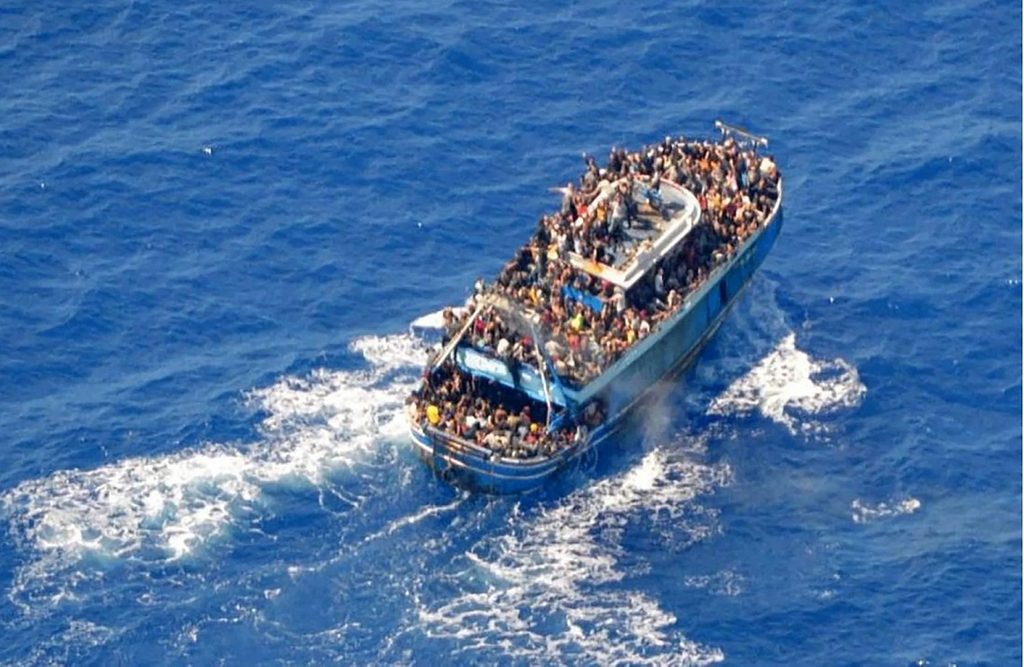Lighthouse Reports, an investigative consortium, reported this week that the European Border and Coast Guard Agency (Frontex) has been sharing coordinates of migrant boats in distress in the Mediterranean Sea with a vessel run by a militia in eastern Libya.
As previously reported, Frontex is currently subject to an inquiry by the European Ombudsman concerning its respect of fundamental rights in the context of search and rescue missions (SAR) in the maritime operations in the Mediterranean Sea. A spokesperson for the Ombudsman told The Brussels Times that it cannot say when the inquiry will be finalized.
Asked whether the Ombudsman will also look at Frontex’ roll in the incidents described by Lighthouse, the spokesperson replied that the scope of its inquiry relating to Frontex remains the same and deals with incidences that took place prior to the inquiry opening in July 2023.
According to the report, the Libyan boat is named TBZ after the militia operating it. Since May, the group has been intercepting more than 1,000 people at sea off the coasts of Libya and Malta and returned them to Libya where they face mistreatment. Lighthouse claims that the group would not been able to find the refugee boats without the help from Frontex surveillance planes.
Both Frontex and Malta say that their aim when sharing the coordinates – directly or indirectly - with TBZ is to help people in distress. Responding to Lighthouse questions on an incident on the 26 July, Frontex said its experts decided to issue the alert because “the vessel was far away from the shoreline, it was overcrowded, and there was no life-saving equipment visible.”
Lighthouse claims that it has obtained confidential reports showing that EU states are aware of the illicit nature of many of TBZ’s activities, including human trafficking. The group was described in an EU report as being supported by the notorious Russian Wagner Group. Frontex declined to comment on whether TBZ was an appropriate partner.
The migrant boats were intercepted off the costs of Libya and Malta but Lighthouse could not say where exactly it had happened. Asked if the boats were in real distress, Lighthouse told The Brussels Times that this might be different depending on the circumstances and how distress is defined.
Lighthouse has analysed five cases of interception by TBZ. “The cause of the mayday (distress signal) on 26 July was overcrowding, so by definition all migrant boats are in distress. We know that this boat was able to keep sailing from Libyan waters after the mayday and that two people on board we interviewed did not mention being in distress before the interception.”
The interviews were made through NGOs and Syrian contacts that are covering migration stories for Lighthouse.
Frontex has a management board which is composed by member states representatives and two members of the European Commission. Asked to comment on the report, a Commission spokesperson referred questions to Frontex but the EU agency did not reply to a request from The Brussels Times for comments on the Lighthouse report.
M. Apelblat
The Brussels Times

